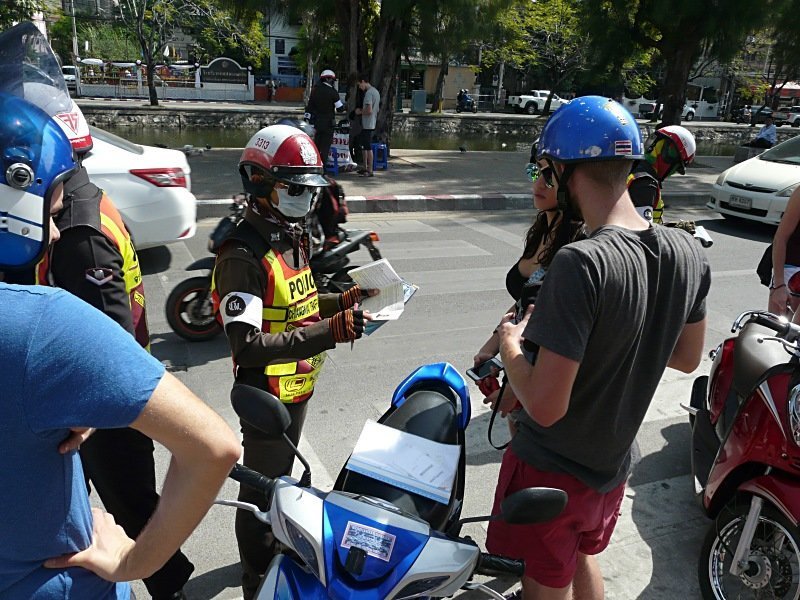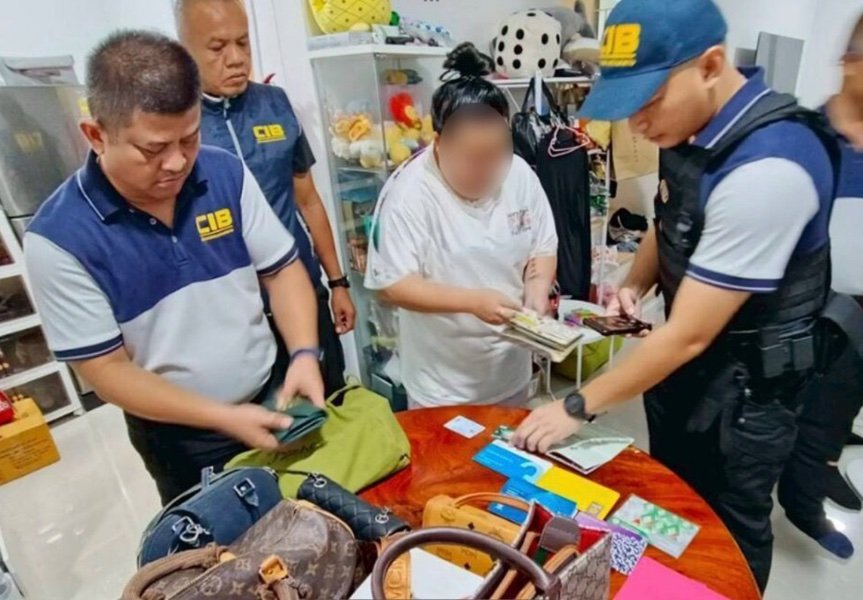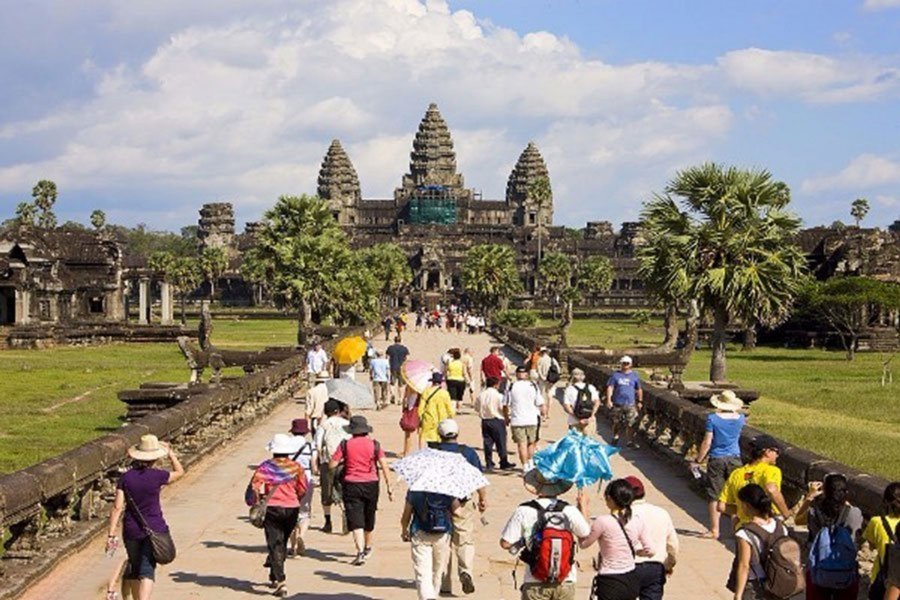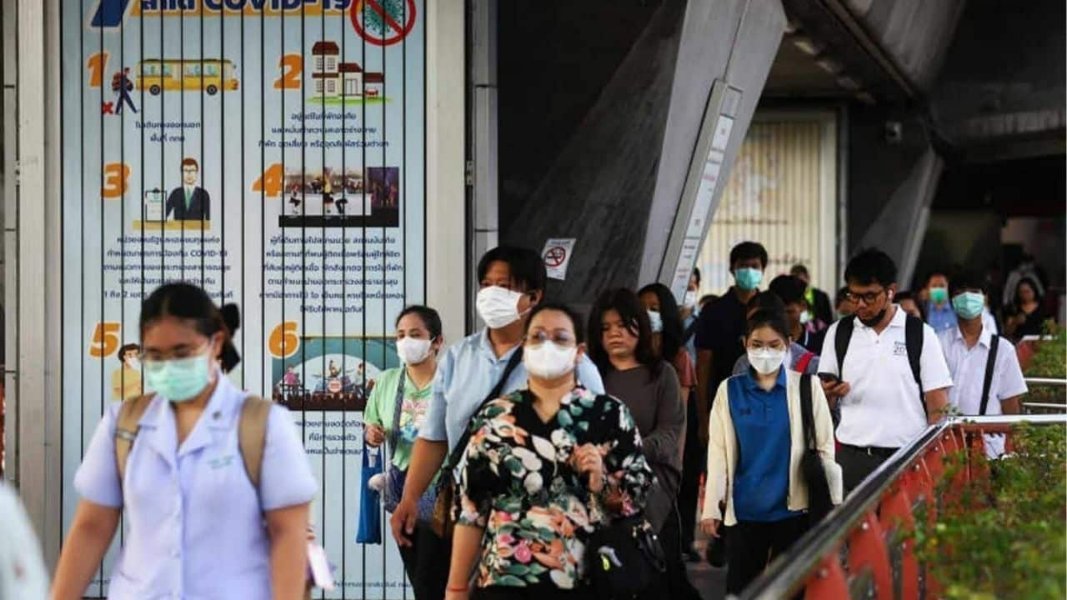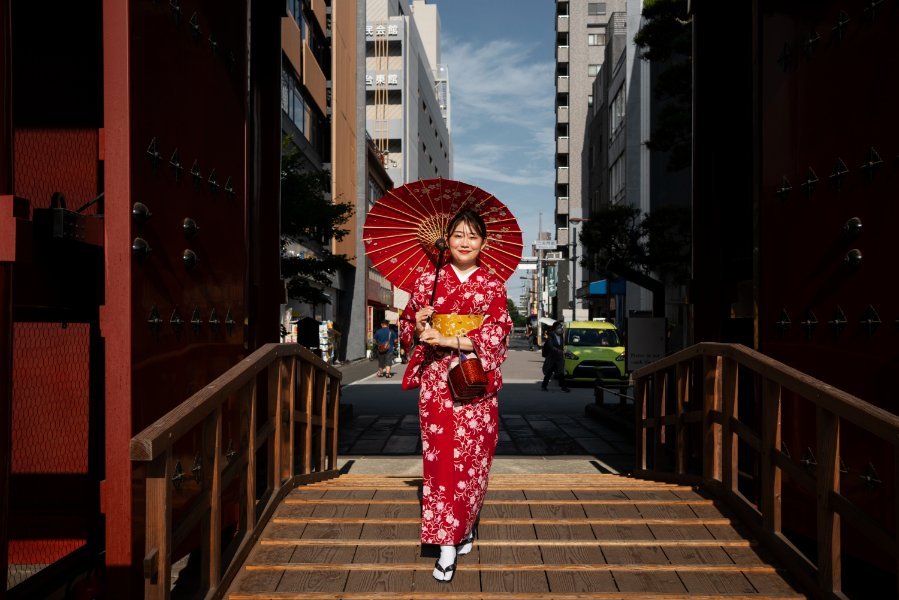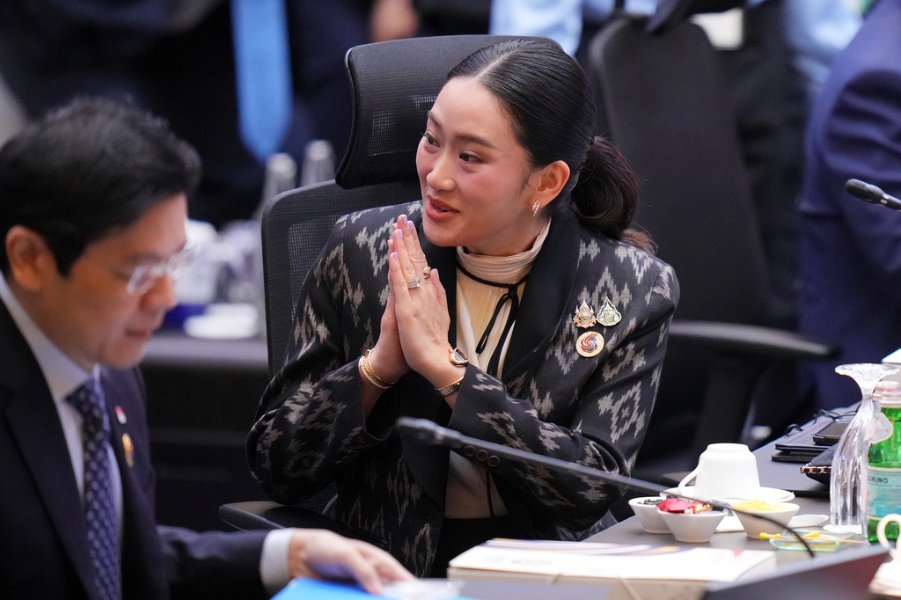Nyheter fra Thailand - levert av ASEAN-now (Tidligere Thai Visa)

My RSS Feed
- Danish Man Missing in Thailand: Family Urges for Public Assistance

Photo: Scandasia
Jakob Jensen, a 41-year-old Danish citizen, has been missing in Thailand since early March 2025, leaving his family deeply concerned for his well-being. The situation began to unravel after Jakob arrived in Thailand on 2 February, initially lodging with a friend in Ranong province. This unplanned yet fateful decision ultimately became the start of a bewildering sequence of events.
His stay in Thailand, originally intended as a temporary visit, took a worrying turn when his friend noticed signs of mental distress. On 1 March, in an effort to ensure Jakob's safe return to Denmark, the friend escorted him to Suvarnabhumi Airport in Bangkok. Unfortunately, Jakob did not board the flight as planned. Instead, he remained in Thailand, seemingly disappearing into thin air.
Jakob's last known communication was an email to his mother on 2 March, in which he appeared calm and composed, giving no indication of any turmoil. However, the email marked the last known contact anyone had with him. By 3 March, his phone had been switched off, cutting Jakob off from the world, including his family, who were left baffled and worried.
In a puzzling twist, reports indicated that Jakob reappeared around 19 March back in Ranong, where he was spotted at the Palmy Hotel. Witnesses reported his behaviour grew increasingly erratic; he was noted to be confused and incoherent. The situation came to a head on 21 March when Jakob caused damage to hotel furniture, a clear sign of his escalating distress. Tourist Police officers intervened, helping him settle the damages and facilitating his departure on a bus bound for Bangkok. Jakob mentioned a plan to meet a friend in the city, yet there is no confirmation he arrived there.
Comments on Facebook have provided additional context to Jakob's condition, pointing out his mental struggles. His sister Anne Jensen's posts have drawn comments, some from eyewitnesses of the hotel incident, shedding light on Jakob's fragile state.
The concern for Jakob’s safety has intensified, particularly given the likelihood he is without essential medication. His family fears for his vulnerability and is desperate for news. The case has been escalated to the Royal Danish Embassy in Thailand, the Tourist Police, Thai immigration, and the Danish police. An international missing persons alert was launched on 6 May 2025, as authorities join the effort to locate Jakob.
Jakob's family is reaching out to the public for assistance, urging anyone with information to come forward. They can be contacted via Anne Jensen’s Facebook page or through the Royal Danish Embassy in Thailand at +66 (0)2 343 1100. The family seeks closure and hopes to bring Jakob home safely, harnessing the power of community and international collaboration in their search.
 Adapted by ASEAN Now from Scandasia 2025-05-13
12 May 12 20251360439
Adapted by ASEAN Now from Scandasia 2025-05-13
12 May 12 20251360439 - Foreign Nationals Face Account Bans in Bangkok Bank Crackdown

BANGKOK – Bangkok Bank has tightened account-opening rules for foreign nationals in Thailand, raising concerns among tourists and expats without long-term visas. This move is part of a broader effort by Thai authorities to crack down on financial fraud and the misuse of "mule" accounts.
As the country's largest bank by assets, Bangkok Bank now requires foreigners to meet stricter eligibility criteria to open deposit accounts, apply for credit cards, or use mobile banking services.
Effective since January, these new conditions aim to bolster national cybersecurity efforts and prevent criminal syndicates from exploiting the banking system. In practical terms, tourists, including those on the newly introduced Destination Thailand Visa (DTV), are now prohibited from opening accounts with Bangkok Bank. Only foreigners with long-term visas, property ownership, or Thai spouses qualify under the updated requirements.
A Blow to Short-Term Visitors
This policy shift marks a significant change for travellers who have relied on local bank accounts for convenience during extended stays. It adds a layer of complexity for digital nomads and seasonal expats without permanent residency or work permits.
A Bangkok Bank spokesperson confirmed to Russia’s TASS news agency that the policy applies to all tourists, regardless of nationality.
It includes DTV holders, who are technically classified as tourists despite being allowed to stay for up to 180 days. Social media posts, especially from Russian nationals, suggest the bank has started freezing accounts or restricting access for those who don’t meet the criteria.
While some users report being locked out, the bank clarifies that not all blocked accounts are closed. In some cases, customers must visit a branch to verify their identity, including biometric scans.
Ripples Across the Foreign Community
The Bangkok Community Help Foundation, a local non-profit, has received reports of account issues affecting foreigners. “There are also rumours that the bank may apply similar measures to all nationalities who don’t meet the new criteria, raising serious concerns across Thailand’s diverse foreign resident and traveller communities,” the group stated on its Facebook page.
Expats and travellers with existing accounts are urged to check their status and contact the bank if in doubt. This policy shift raises fears that other Thai banks may follow suit, imposing strict measures in response to rising fraud concerns.
Central Bank Sets the Tone
These changes come amid pressure from the Bank of Thailand, requiring financial institutions to enhance identity verification and due diligence processes. Recently, the central bank highlighted a case in Pattaya where four bank staff, not from Bangkok Bank, were implicated in opening mule accounts for call centre scams.
Daranee Saeju, assistant governor for financial consumer protection, confirmed that new digital fraud guidelines are being developed. These will require banks to screen customer names against the Anti-Money Laundering Office’s database, assess individual risk profiles, and enforce stricter transaction limits as necessary.
“If the process does not comply with central bank regulations, banks must take immediate corrective action,” Ms. Daranee said.
What Foreigners Need to Know
Currently, Bangkok Bank stipulates that only those with long-term residence, such as retirees, foreign workers, or individuals married to Thai nationals, can open new accounts. These individuals typically hold work permits or non-immigrant visas issued for employment, study, or family reasons.
The message to tourists is straightforward: if you're here for a short stay, don’t expect to open a local account. If you already have one, it’s advisable to verify your continued eligibility.
Though well-intentioned, this financial crackdown represents a sudden and disruptive development for many in Thailand’s foreign community, potentially complicating financial management in the Land of Smiles.
 Adapted by ASEAN Now from Bangkok Post 2025-05-28
28 May 28 20251362091
Adapted by ASEAN Now from Bangkok Post 2025-05-28
28 May 28 20251362091 - Bangkok Named Best City in the World for Remote Work by New York Post

Picture courtesy of Khaosod.
Bangkok has been ranked the best city in the world for remote work, according to a report by the New York Post, citing high-speed internet, a low cost of living and vibrant cultural attractions as key factors behind the capital’s top spot.
Sasikarn Wattanachan, Deputy Spokesperson for the Prime Minister’s Office, announced the news on 31 May, noting that Bangkok’s combination of modern infrastructure and rich cultural heritage makes it particularly appealing to digital nomads.
“Bangkok’s ornate temples, world-famous cuisine and bustling street life offer an unmatched experience for those seeking a new way of working and living,” said Sasikarn. “The city is full of energy and vibrancy, blending traditional Thai charm with modern convenience.”
The New York Post cited data from QR Code Generator, which recently compiled an index ranking the best global cities for digital nomads. The index considered factors such as internet speed, cost of living, availability of remote work visas and overall quality of life. Bucharest, the capital of Romania, came in second place.
The report highlighted the growing popularity of remote work, nearly five years after the onset of the COVID-19 pandemic, as more professionals seek flexible arrangements that allow them to work from abroad.
In response to this trend, the government is actively promoting the country as a remote work hub. Sasikarn explained that Thailand has expanded its visa-free entry to 93 countries and territories, allowing visitors to stay for up to 60 days. Additionally, the newly introduced Destination Thailand Visa (DTV) aims to attract foreign nationals who wish to work remotely or engage in cultural or medical activities while travelling in Thailand.
“These measures are part of the government’s wider strategy to meet the needs of modern travellers and stimulate the Thai economy year-round,” she added.
The recognition from the New York Post is seen as a major boost to Thailand’s tourism and remote work sectors, reaffirming Bangkok’s status as one of the world’s most dynamic and welcoming cities for international professionals.
 Adapted by Asean Now from Khoasod 2025-06-01.
31 May 31 20251362373
Adapted by Asean Now from Khoasod 2025-06-01.
31 May 31 20251362373 - Cyber Agency Warns of Millions of Leaked Accounts Linked to Pirated Software Use

Picture courtesy of The Standard.
The National Cyber Security Agency (NCSA) has issued an urgent warning following the discovery of over a million leaked user credentials, blaming pirated software as a major cause of severe cyber threats to both individuals and organisations.
Air Vice Marshal Amorn Chomchoey, Secretary-General of the NCSA, revealed on 30 May that investigations by the national Computer Emergency Response Team (ThaiCERT) had uncovered widespread use of illegal software. This, he said, had become a primary entry point for hackers to infiltrate computer systems, steal data and launch ransomware attacks.
“The use of pirated software is still alarmingly common. It’s not just an issue of legality, it’s a significant security risk. Once malware embedded in this software accesses user credentials, such as usernames and passwords, it allows hackers to infiltrate internal systems undetected,” Amorn stated.
He warned that infected systems can expose sensitive login information for services such as VPNs, Remote Desktop connections and cloud platforms, giving attackers direct access to organisational networks. Once inside, they can move laterally across systems, stealing data or deploying ransomware.
According to Amorn, more than one million usernames and passwords have already been compromised, with some victims losing entire balances of cryptocurrency from digital wallets. The attacks typically go unnoticed by standard security software, as the credentials used are legitimate and trusted.
ThaiCERT’s analysis revealed that various forms of malware are often bundled with pirated software. The most common threats include:
• Phishing – Scams where attackers impersonate trusted entities to trick victims into revealing personal or financial information.
• Ransomware – Malicious programs that lock a user’s data and demand payment for its release.
• Cryptojacking – The unauthorised use of a victim’s device to mine cryptocurrency, leading to performance degradation and overheating.
Amorn urged the public and organisations to conduct basic checks for signs of malware infection and to cease using unauthorised software immediately. Users can visit the NCSA website at www.ncsa.or.th for guidelines on how to detect potential infections and take appropriate action.
The agency emphasised that securing systems and using only licensed software is essential in the fight against increasingly sophisticated cybercrime.
 Adapted by Asean Now from The Standard 2025-06-01.
31 May 31 20251362372
Adapted by Asean Now from The Standard 2025-06-01.
31 May 31 20251362372 - Expat Confusion Grows as Thailand Cracks Down on Helmet Law Violations

File photo courtesy of Triptipedia
Thailand’s latest initiative to enforce stricter motorcycle helmet regulations is creating a stir among residents and tourists. Starting 1 June, the "Safe Roads Project", spearheaded by Thai traffic police, aims to curb road accidents by imposing a heftier fine of up to 2,000 baht for those caught without a helmet.
This campaign zeroes in on high-risk areas, especially around schools, to foster adherence to traffic laws.
The new mandate requires all motorcyclists and passengers to wear helmets at all times, without exceptions based on travel distance or location.
This move addresses Thailand’s troubling road injury rates, which heavily involve motorcycle users. Notably, the change quadruples the previous penalty, reflecting the government's commitment to road safety.
This revised law has left some expatriates puzzled. A post on Reddit by a foreign resident highlights a debate over whether Thailand's helmet law applies to motorcycles with sidecars, known as saleng. The post details a playful argument with his Thai wife, who contends that the configuration of a saleng exempts passengers from wearing helmets, while he insists it shares the same legal status as traditional motorcycles.
So far, the Royal Thai Police have not made any special provisions for saleng configurations, suggesting the same helmet rules apply to all motorcycle types. This lack of distinction underlines an important aspect of the new regulation, its simplicity and broad application.
The authorities are focusing efforts on regions notorious for traffic breaches or mishaps, stepping up patrols and checkpoints to catch repeat offenders. With motorcyclists making up a significant portion of road casualties, this campaign signifies a crucial step in addressing Thailand’s road safety challenges head-on.
In conclusion, this strict enforcement of helmet laws is a strategic attempt to reduce road fatalities, targeting compliance through hefty fines and heightened police vigilance. As Thailand aims to protect its residents and visitors, it underscores the importance of safety over convenience on its bustling roads.
 Adapted by ASEAN Now from Bangkok Post 2025-05-31
30 May 30 20251362304
Adapted by ASEAN Now from Bangkok Post 2025-05-31
30 May 30 20251362304 - Fake Online Gambling Gang Busted in Police Operation

Picture courtesy of Khaosod.
Police have dismantled a sophisticated criminal network behind a fake online gambling scam that tricked victims into investing large sums in a bogus “high-return” baccarat scheme, only to find themselves unable to withdraw any profits.
The crackdown, codenamed “Operation Stop Fake Betting”, was led by Pol Maj Gen Witya Sriprasertphap, commander of the Crime Suppression Division (CSD). More than 50 officers were deployed across multiple provinces to arrest members of the gang, who lured victims with promises of easy profits from online gambling handled by supposed professionals.
Eight suspects were arrested under court warrants for public fraud, importing false computer data likely to cause public harm, conspiracy to commit money laundering, and actual money laundering. The accused include 32-year-old ringleader Ms Natthakanya, along with Ms Sudarat, 35, Ms Natwara, 27, Ms Bussarin, 40, Ms Sairung, 43, Ms Wasana, 50, Mr Kriangsak, 25, and Mr Thatchawin, 34.
Vehicles, three ATM cards, two computers, nine mobile phones, high-end designer goods and over 50 other valuable items, worth an estimated 2 million baht, were seized during raids in Bangkok, Nonthaburi, Pathum Thani, Ayutthaya, and Chiang Rai.
Investigations were launched after multiple victims filed complaints stating they were initially invited to join a group promoting branded handbag investment. The focus soon shifted to a new “investment opportunity” involving online baccarat, presented as a fast-track to high returns. Victims were instructed to register fake gambling accounts and hand over their login details to a so-called team of professional players.
The scammers showcased fabricated income screenshots and fake withdrawal slips to gain the victims’ trust. However, once money was transferred, the victims were unable to withdraw any profits. Instead, they were repeatedly asked to pay additional “processing fees”, including fictitious tax charges, account unlocking fees and even bogus international transaction fees.
According to police, the gang operated with a clear structure, some members controlled mule accounts used for laundering funds, others withdrew cash from ATMs and a core group handled the deception and oversaw the entire scheme. One remaining suspect is still at large.
Ms Natthakanya admitted to masterminding the scam, which began as early as 2021. Several other suspects claimed they were unaware of the operation’s criminal nature, saying they were only asked to lend bank accounts.
All arrested individuals have been transferred to the CSD’s Division 3 for further legal proceedings. Authorities are intensifying efforts to track down the final suspect and are urging other potential victims to come forward.
 Adapted by Asean Now from Khoasod 2025-06-01.
31 May 31 20251362359
Adapted by Asean Now from Khoasod 2025-06-01.
31 May 31 20251362359 - Cambodia Outshines Thailand in Race for Chinese Tourists

Picture courtesy of China Daily
In an intriguing twist in Southeast Asia’s tourism landscape, Cambodia is emerging as a significant contender for Chinese holidaymakers, leaving Thailand trailing in its wake. Central to this success is Cambodia's strategic designation of 2025 as the "China-Cambodia Tourism Year," a move already yielding remarkable returns. Just last week, Phnom Penh welcomed a landmark arrival of 1,000 Chinese tourists from Wuxi, marking a significant milestone in reshaping regional tourism dynamics.
While Thailand grapples with dwindling numbers of Chinese visitors, attributed largely to negative press surrounding tourist scams and issues, Cambodia has adeptly positioned itself as a budget-friendly, hassle-free haven. This allure arises from its transparent visa policies. Although Cambodia does not offer visa-free entries like Thailand, its US$39 e-visa is lauded for its simplicity and cost-effectiveness, with overall travel expenses remaining notably lower.
Adding to Cambodia's appeal is the promise of enhanced infrastructure with the upcoming Techo International Airport. Slated to open in September, this US$1.5 billion mega-structure, operated by French conglomerate VINCI, is set to become one of the world's largest airports. It is designed to accommodate the largest aircraft, such as the Airbus A380-800 and Boeing 747-800, and will soon be launching direct long-haul routes from Europe and other continents, potentially reshaping the region’s connectivity.
Cambodia's tourism sector has already experienced a buoyant start to 2025, with 2.4 million international visitors in the first four months—marking a 14% rise from the previous year. Chinese arrivals have surged by 49%, underscoring the effectiveness of strategic efforts to cater to this high-potential market. In addition to Chinese tourists, the UK and France are leading European source markets.
To further bolster tourism during its traditionally quieter months, Cambodia has rebranded its rainy season (April to October) as the "Green Season." This clever marketing campaign focuses on promoting the country's natural beauty, tranquillity, and cooler climate, appealing to travellers seeking off-peak experiences.
With its straightforward visa process, competitive travel costs, and strategic marketing paired with significant infrastructural advancements, Cambodia is staking its claim as a new tourism darling in Southeast Asia. While Thailand strives to recover its faltering reputation, Cambodia’s effective measures and ambitious plans may see it solidify its position as a preferred destination for Chinese tourists and beyond.
 Adapted by ASEAN Now from The Thaiger 2025-05-29
29 May 29 20251362154
Adapted by ASEAN Now from The Thaiger 2025-05-29
29 May 29 20251362154 - New Covid-19 Variant NB.1.8.1 Gains Ground in Thailand

Photo courtesy of Bangkok Post
Thailand's health experts are on high alert as a new Covid-19 variant, NB.1.8.1, emerges as a potential dominant strain. Dr Yongyot Thummavudhi, head of the Department of Medical Sciences (DMSC), unveiled on 29th May that the World Health Organisation (WHO) is keeping a vigilant eye on multiple Omicron variants. Among them, NB.1.8.1 is attracting particular attention.
The six variants under current scrutiny include KP.3, KP.3.1.1, LB.1, XEC, LP.8.1, and notably, NB.1.8.1. Data from the Global Initiative on Sharing All Influenza Data (GISAID) revealed that while the LP.8.1 variant was prevalent earlier this year, its presence has waned in recent weeks. In contrast, NB.1.8.1 has surged, increasing from 2.5% to 10.7% of cases within a month, indicating its rapid rise.
NB.1.8.1, a subvariant of Omicron, traces its lineage to the hybrid XDV.1.5.1 strain and was first identified in Thailand on January 22. It has since been detected in 22 countries. Dr Yongyot stressed the importance of understanding these variants to effectively manage their spread and impact.
The DMSC is collaborating with WHO and international partners to gauge these variants' effects on public health and vaccine efficacy. As the virus evolves, authorities continue to advise maintaining vigilance, practicing good hygiene, and adhering to vaccination protocols to counter the spread.
Meanwhile, Phuket, despite being a popular tourist destination, ranks third for Covid-19 infections in Thailand this year, with 1,287 cases from January 1 to May 10. The island's infection rate stands at 317.82 per 100,000 people, trailing only Bangkok and Chon Buri. Remarkably, Phuket has reported no deaths despite its high case count.
Nationally, Thailand has documented 73,070 Covid-19 cases and 25 deaths this year, reflecting a low mortality rate of 0.043 per 100,000 people. This statistic underscores the effectiveness of the country's health measures in managing the ongoing pandemic.
 Adapted by ASEAN Now from The Thaiger 2025-05-30
30 May 30 20251362255
Adapted by ASEAN Now from The Thaiger 2025-05-30
30 May 30 20251362255 - TAT Rolls Out Roadshow in Japan: Eyes THB 55 Billion Tourism Surge
Picture courtesy of Freepik
In a grand bid to draw more Japanese tourists and hit a lofty revenue target, the Tourism Authority of Thailand (TAT) has unleashed the ‘Amazing Thailand Roadshow to Japan 2025’. Spanning three bustling cities, Tokyo, Nagoya, and Fukuoka, the roadshow is making waves and aiming to net a whopping THB 55 billion by the year’s end. The strategy? Engage, entice, and expand—the trifecta approach to luring travellers from Japan’s rich market.
With Japanese tourism to Thailand on the upswing—up a robust 12.3% in 2025—the roadshow is timely. Last year, over a million Japanese tourists hit Thai shores, a first since the pandemic threw a wrench into travel plans worldwide.
To keep the momentum going, TAT has lined up roadshow events chock-full of opportunities for over 25 Thai tourism businesses. The schedule is packed to the brim from May 26 to 30, promising more than 1,000 business tete-a-tetes with 60-plus Japanese travel operators.
Japan was a cash cow for Thai tourism before COVID-19, raking in 93.7 billion baht from 1.78 million visits in 2019. Fast forward, and 2024 saw a promising uptick to 1,050,904 arrivals, a solid 30.68% year-on-year climb.
New data for 2025’s first quarter shows 374,000 arrivals, mainly buoyed by flight recoveries between the two countries. This positive trend is matched by stats from the Japan National Tourism Organization (JNTO), recording a 20.7% surge in outbound Japanese travellers this February.
Deputy Governor Pattaraanong Na Chiangmai has set the wheels in motion by targeting Japan’s low-travel Green Season. Her roadmap goes beyond typical tourist bustle, offering irresistible packages for premium travellers, plus Millennials and Gen Z thrill-seekers chasing unique experiences. Emphasis is also on winning repeat visits and expanding tantalising Thai temptations to Japan’s rural pockets.
With this roadmap, TAT sets a course for robust engagements, enticing offers, and geographical expansion, laying the groundwork for a prosperous tourist influx from Japan as the global travel scene bounces back.
 Adapted by ASEAN Now from The Nation 2025-05-31
30 May 30 20251362307
Adapted by ASEAN Now from The Nation 2025-05-31
30 May 30 20251362307 - Storm Brewing: Elite Powers Disenchanted with PM Paetongtarn’s Reign

Thailand's Prime Minister Paetongtarn Shinawatra gestures as she attends the plenary session at the Association of Southeast Asian Nations (ASEAN) Summit in Kuala Lumpur, Malaysia, Monday, May 26, 2025. (AP Photo/Vincent Thian)
THAILAND – Prime Minister Paetongtarn Shinawatra faces formidable criticism from high-ranking power brokers dissatisfied with her leadership. Dubbed a mere "puppet" of her influential father, Thaksin Shinawatra, Paetongtarn’s tenure is now under siege, as academic Pornchai Theppanya voices concerns over her unfitness to govern.
The noted former dean of Ramkhamhaeng University’s Political Science Faculty suggests a leadership change may loom on the horizon.
Despite leading for nine months following Srettha Thavisin, Paetongtarn’s performance reportedly fails to impress crucial influencers, including those instrumental in Thaksin’s exonerated return from self-exile.
Allegedly, Thaksin’s comeback was sealed with a "secret deal" ensuring his legal freedom, but not without strings attached. The fact that the academic has refrained from identifying a prospective replacement doesn’t diminish the palpable tension within political circles.
Complicating matters further, Paetongtarn’s purported plans to dissolve the House of Representatives for a general election face staunch opposition from within the corridors of power.
This strong-arm vigil to maintain the status quo echoes further with disagreements on ejecting the conservative Bhumjaithai Party, led by Newin Chidchob, from the ruling coalition. This inter-party unrest emphasises unresolved conflicts and underscores Paetongtarn's precarious position.
Meanwhile, as Thaksin manoeuvres through his legal predicaments, speculation mounts over whether Paetongtarn will cede her position willingly or under pressure.
The political chessboard also features Deputy Prime Minister Anutin Charnvirakul, leader of the Bhumjaithai faction. Anutin's political ambitions for the 2027 general elections cast another layer of intrigue in this unfolding drama.
Ultimately, whether or not Paetongtarn can withstand these pressures remains a pressing question. Her leadership is not only tested by external scepticism but also by the intricate dynamics of coalition politics.
In an environment where whispers carry weight and alliances flicker as quickly as candles, the scene is set for a potentially monumental shift in Thailand’s governance. The country watches closely as this high-stakes political challenge evolves.
 Adapted by ASEAN Now from Thai Newsroom 2025-05-29
29 May 29 20251362151
Adapted by ASEAN Now from Thai Newsroom 2025-05-29
29 May 29 20251362151

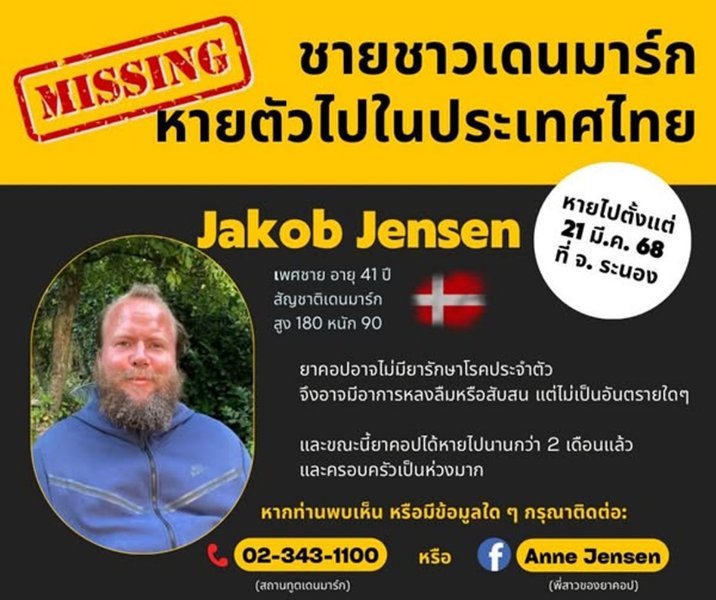



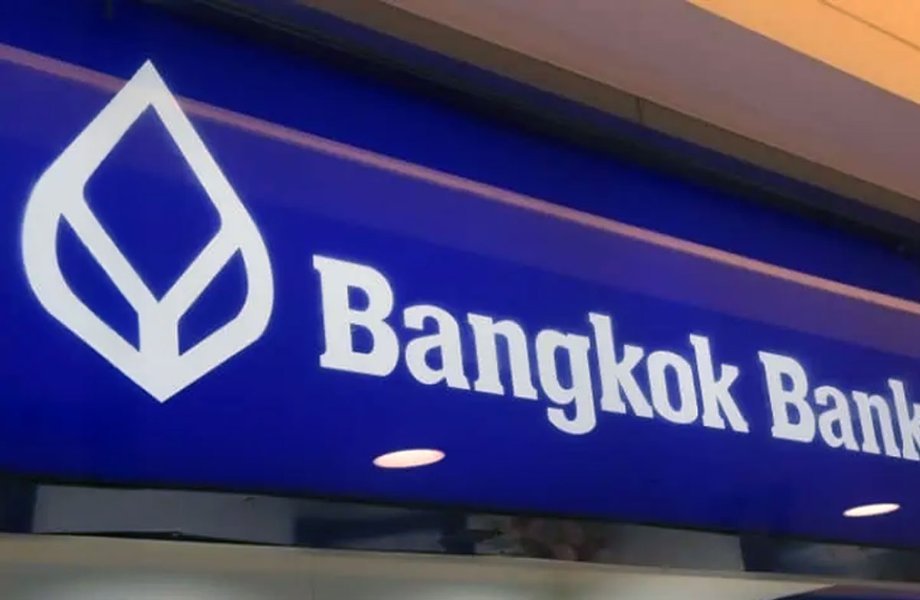


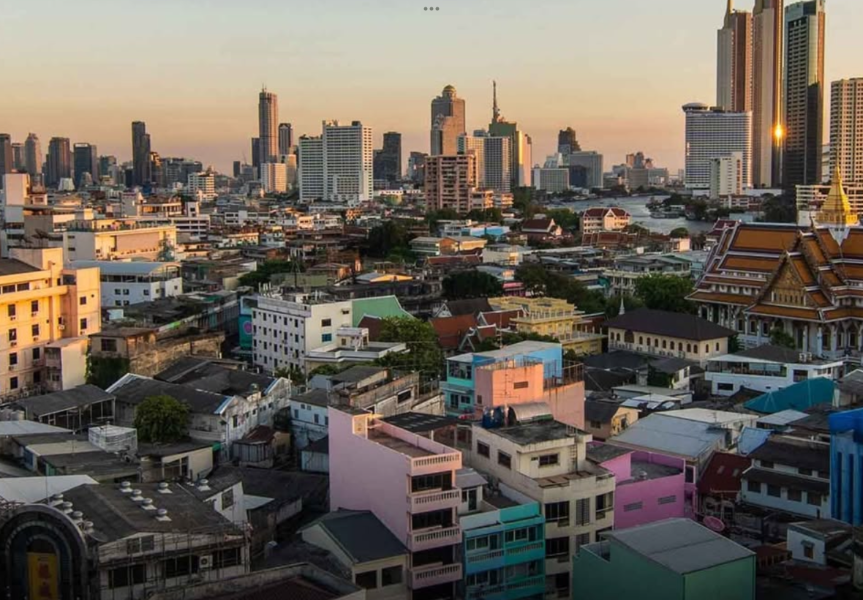

.png.cb4b9e8ad6020573842bd0eaf3bcd034.png)

